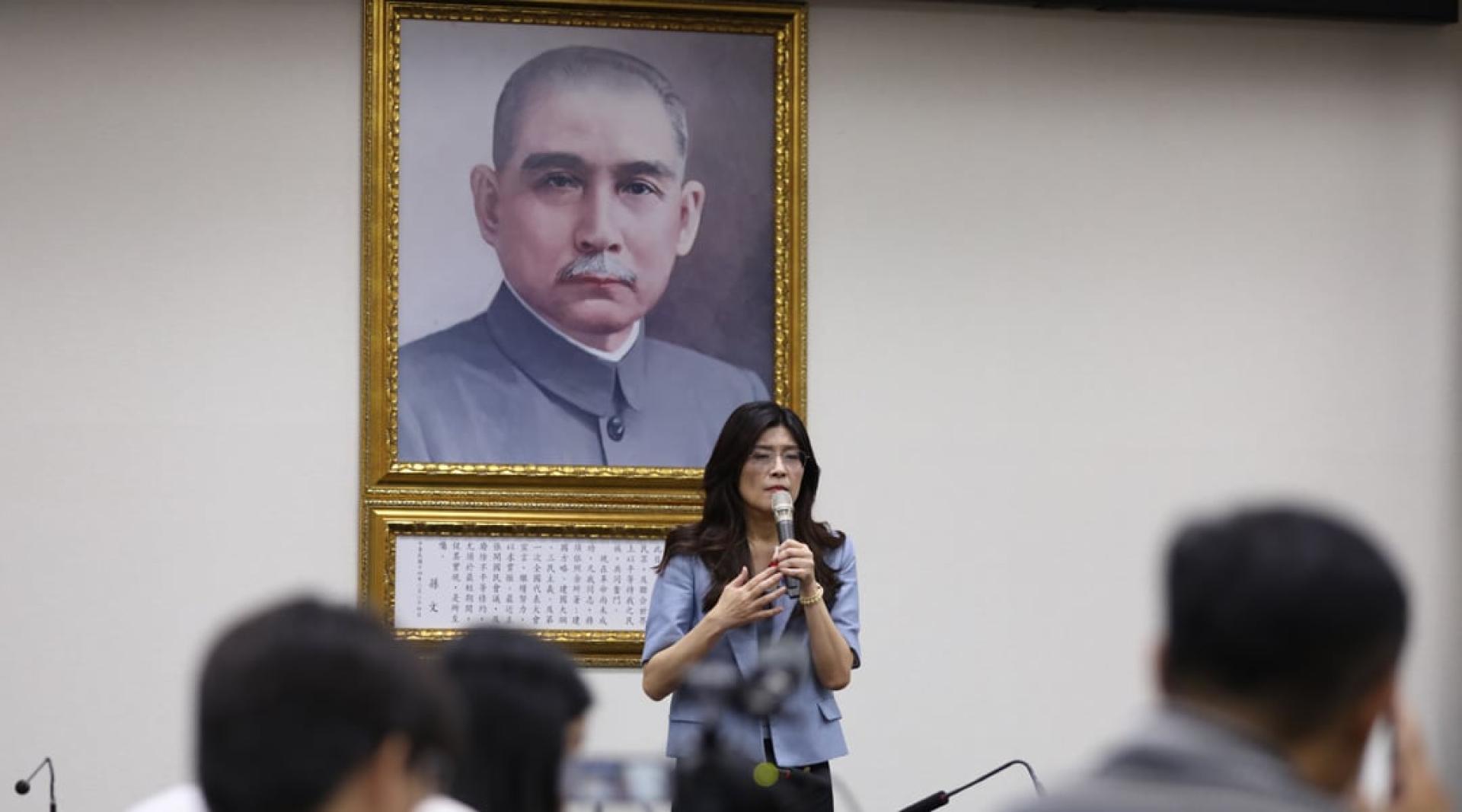When asked in an exclusive interview on the 20th whether she would meet with Chinese leader Xi Jinping in China, newly elected KMT (Kuomintang) chairperson Cheng Li-wen said that if such a meeting could help resolve the contradictions and differences between the two sides of the strait and bring common prosperity and peace, she would certainly go. However, the key point is representativeness; as of now, she would only be representing the KMT chairperson, but she hopes that in the future the KMT can win power, so that she can represent the will of the entire Taiwanese people—that is what matters most.
The KMT chair election vote counting took place on the 18th, and Cheng Li-wen was elected as the new party chairperson.
On the 19th, CCP General Secretary Xi Jinping called Cheng Li-wen to congratulate her on her election as the KMT chairperson. In his congratulatory message, Xi expressed hope that the two parties would stick to their shared political foundation, unite the broad masses of Taiwanese compatriots, bolster their pride, integrity, and confidence in being Chinese, deepen exchanges and cooperation, promote common development, and advance national reunification.
In a broadcast interview on "Chianqiuwanshi" (Millennium Affairs), Cheng Li-wen said that the password for cross-strait interactions remains the 1992 Consensus and opposition to Taiwan independence. The congratulatory message from mainland China was an extended hand of friendship, allowing people to feel that at least the two sides can communicate—unlike the Mainland Affairs Council which just reads but doesn't reply, making communication impossible, resulting in much harm and loss of rights for the Taiwanese people, as well as a stall in cross-strait exchanges.
Cheng Li-wen said that the KMT and DPP have different positions on cross-strait relations: "We hope for cross-strait peace, whereas the DPP keeps stepping on red lines." She believes the DPP's promotion of the "two-state theory" increases tensions, and hopes to pull the situation back onto a path of reconciliation: "Let both sides strive for reconciliation and work hard."
KMT Turning Pro-unification?
As for concerns among certain party members that the KMT is shifting from a moderate blue position to a pro-unification (red) stance, Cheng Li-wen responded that she does not understand the rationale for such worries. In this party chair election, every candidate stated they are Chinese; her own cross-strait stance has been consistent and withstands scrutiny, and it reflects the KMT's long-held position, so this is a false issue. She also recognizes this as a tactic by the DPP, using cheap labeling as a "red tag," which can't withstand scrutiny.
Should Pro-China Forces Be Weakened?
Additionally, former Broadcasting Corporation of China chairman Jaw Shao-kang called for a reduction in pro-China forces. In response after her interview, Cheng Li-wen told the media that an election inevitably stirs passions, and as the campaign has just concluded, it might take some time for emotions to cool down. She hopes the election fervor can subside as soon as possible.
On the 18th, former Broadcasting Corporation of China chairman Jaw Shao-kang expressed that the main task of the new party chair is simply to stabilize the current situation and smoothly transition to 2026 and 2028—making sure not to create trouble or undermine the party. If leading coordination among mayors, county heads, and the legislative caucus, the chair must redouble efforts on reform and reduce pro-China forces, otherwise the party center will be ineffective.
Jaw Shao-kang also stated that a political party's survival depends on elections, and the KMT must recognize that elections are held in Taiwan, for voters in Taiwan—not on the mainland. The party should pursue Taiwan's greatest interests and prioritize the interests of Taiwanese voters.
